Featured Resources
 Video
Video
Protect Your Money When Buying a Home from Scams
ALTA wants homeowners and sellers to be aware that criminals are using wire fraud schemes to steal money meant for home purchases or the proceeds from the sale of the property.
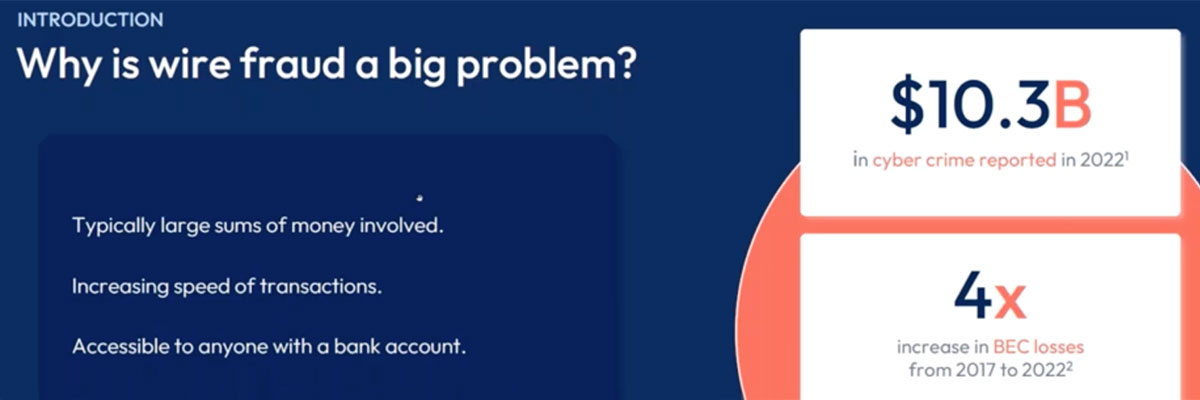 ALTA Insights Webinar
ALTA Insights Webinar
The State of Wire Fraud in the Title Industry
Significant progress has been made in our industry over the past few years on wire fraud awareness and education. The latest FBI IC3 and CertifID State of Wire Fraud reports contain some surprising findings.
 Education Flyer
Education Flyer
Seller Impersonation Fraud in Real Estate
Fraudsters are impersonating property owners to illegally sell commercial or residential property. Fraudsters are using the real property owner's Social Security and driver's license numbers in the transaction.
Policy + Tools
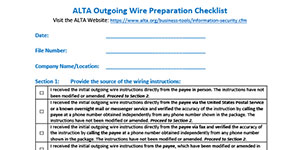
ALTA Outgoing Wire Preparation Checklist
ALTA's Information Security Committee developed this tool for members seeking best practices to verify outgoing wire information. The checklist is broken into three sections: provide the source of the wiring instructions, verify instructions received by email or from someone other than the payee, and verify delivery of wired funds.
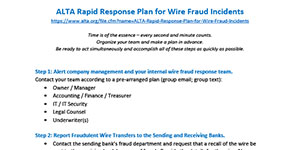
ALTA Rapid Response Plan for Wire Fraud Incidents
The standard ALTA Rapid Response Plan for Wire Fraud Incidents has been developed by the ALTA Information Security Committee.
For Consumers

Protect Your Money When Buying a Home from Closing Scams
Buying and selling a home is an exciting time, but there can be pitfalls for unsuspecting consumers . The American Land Title Association wants homeowners and sellers to be aware that criminals are using wire fraud schemes to steal money meant for home purchases or the proceeds from the sale of the property.

Protect Your Money When Buying a Home from Closing Scams
Mortgage Closing Scams is one of the single costliest forms of fraud a homebuyer can fall victim to. This rack card is meant to be handed out any homeowner who is ready to purchase a home or added to the CPL packet. Available in Several languages
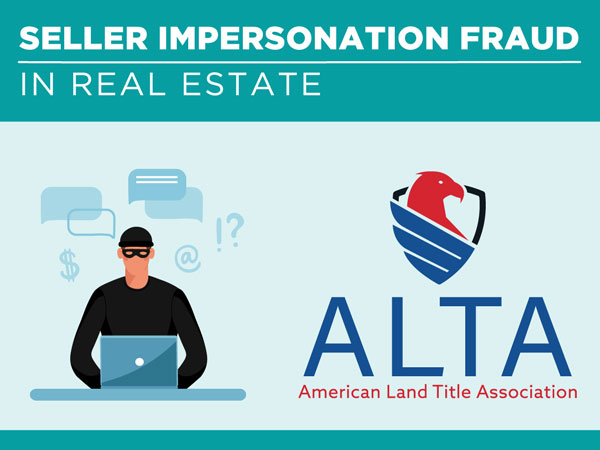
Seller Impersonation Fraud in Real Estate
Fraudsters are impersonating property owners to illegally sell commercial or residential property. Sophisticated fraudsters are using the real property owner's Social Security and driver's license numbers in the transaction, as well as legitimate notary credentials, which may be applied without the notary's knowledge.
In the News

Buyer Suffers Wire Transfer Fraud Loss, Not Escrow Company
A buyer bore the loss when she fell for the trap of phishing wire transfer instructions and wired the purchase money to a fraudster and not the escrow company, the Nevada court of appeals held in the case wheeler v. Clear title co., Inc.

The Latest Scam Vacant Land Fraud
Jaime Kosofsky had just spent a full day attending a cybersecurity conference hosted by Premier One. After eight hours of hearing about all the stuff that could go wrong, a founding partner of the North Carolina-based law firm Brady & ...
Training
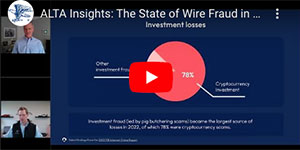
The State of Wire Fraud in the Title Industry
Buying and selling a home is an exciting time, but there can be pitfalls for unsuspecting consumers. The American Land Title Association wants homeowners and sellers to be aware that criminals are using wire fraud schemes to steal money meant for home purchases or the proceeds from the sale of the property.
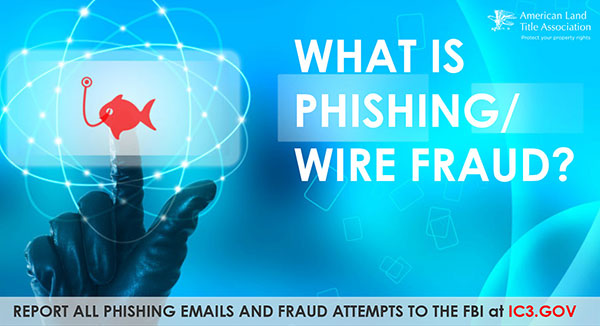
What is Phishing/Wire Fraud
Use this presentation to educate consumers about the dangers of phishing emails and wire transfer fraud. The presentation provides information on what to do if you've fallen victim to a scam and also highlights 10 tips to prevent wire fraud.